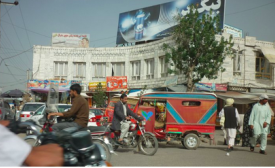iran
More than two-thirds of the Iranian parliament has signed on to a bill that would accelerate Iran’s nuclear program if Congress adopts new sanctions legislation, official news agencies said. The bill would direct Iran’s nuclear agency to enrich uranium to 60%, close to the 90% needed for the material to be used as nuclear bomb fuel. It is currently enriched to a maximum of 20%. The legislation also calls for the start-up of Iran’s partially built Arak heavy-water nuclear reactor.
The Huffington Post headline “Saboteur Sen. Launching War Push” on December 19 and the enraged Jewish reactions to it escaped intense scrutiny because of end-of-the-year vacations and the media’s need to sum up 2013. The incendiary headline, however, should serve as a shot across the bow, intended or not, about the malevolent maelstrom that could engulf the American Jewish establishment in the wake of its unequivocal and nearly unanimous support for new sanctions on Iran.
"Unforgivable" -- that's how the official website of Iran's Supreme Leader Ayatollah Khamenei has described the alleged crimes of opposition members who took part in mass antigovernment protests in 2009. The website has issued its verdict on a poster that shows a court file with the title "The 2009 Sedition" in green (the color of the opposition movement), on which the adjective "unforgivable" has been stamped in red. A wooden gavel is lying next to the file, which carries the logo of the Islamic republic.
The United States and its allies will have ways to reimpose sanctions on Iran if the Islamic Republic is caught making bombs after striking a deal to freeze its nuclear program, national security adviser Susan Rice said on Sunday. In an interview on the CBS news program "60 Minutes," Rice rejected the idea that, once relaxed, the economic sanctions on Tehran would be hard to reinstate.
Right after I graduated from college this past May, I went on a bit of an odyssey. I took a trip to Afghanistan. After being away for three years, I returned to the western part of the country where my family resides. I was struck by how much things had changed for the worse in just three years. Three years ago, there was a lot of employment, a lot of optimism for the future, and an overall hope for a better life. However, this time, complete hopelessness, lawlessness, and uncertainty dominated the atmosphere.

Right after I graduated from college this past May, I went on a bit of an odyssey. I took a trip to Afghanistan. After being away for three years, I returned to the western part of the country where my family resides. I was struck by how much things had changed for the worse in just three years. Three years ago, there was a lot of employment, a lot of optimism for the future, and an overall hope for a better life. However, this time, complete hopelessness, lawlessness, and uncertainty dominated the atmosphere. Everyone lived in a state of utter fear.
Wittingly — or perhaps unwittingly, because of the rapid acceleration of events — Hezbollah’s opponents have not shed much light on the latest major positions expressed by Secretary-General Hassan Nasrallah in his Dec. 3 interview on Lebanon's OTV. Lebanese cultural and intellectual circles, however, are preoccupied with two issues raised by unprecedented assertions by Nasrallah. One issue is external, involving Hezbollah and Iran’s vision of the United States, while the other concerns the Shiite organization’s vision of Lebanon as a nation and a state.
Martin Luther King Jr. once said: “If a man hasn’t discovered something he will die for, he isn’t fit to live.” Nelson Mandela was a man who cherished the ideal of a free society all his life, an ideal that, as he proclaimed at his trial in Pretoria in April 1964, he hoped to live for, but if need be, die for.







